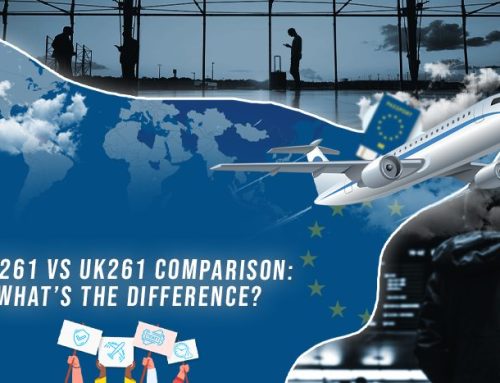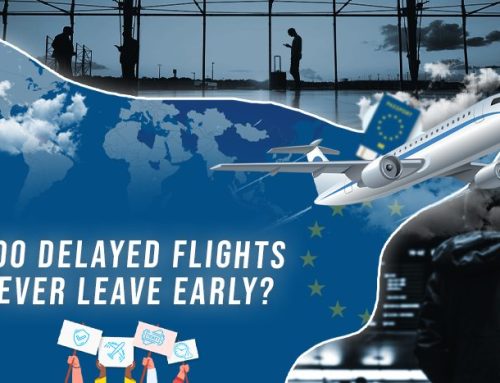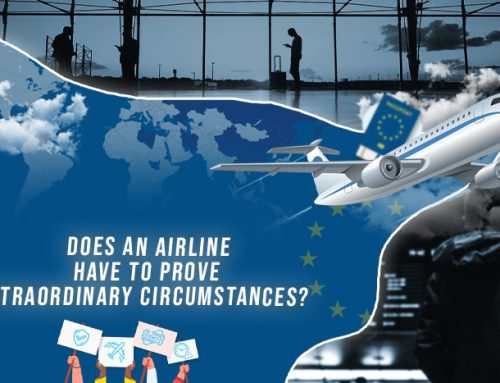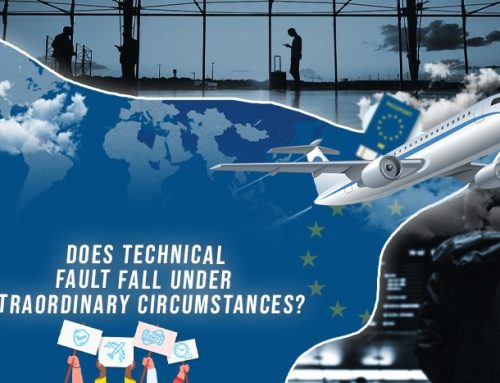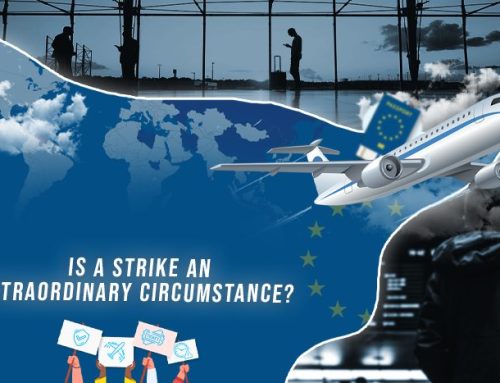Airline strikes can be stressful. There are many different unions that can strike and completely derail your travel plans. There are some strikes that are pre-planned, while others happen without notice. Airlike strikes can last a few hours or a few days. It depends on the strike and what’s outlined in the documentation. Here’s all you need to know about how long airline strikes last.
Key Takeaways
- Airline strikes are organized by labor unions to address grievances related to pay, benefits, and working conditions. They can significantly disrupt travel plans and operations, as employees collectively cease work.
- The duration of airline strikes can vary widely, from a few hours to several days or even longer. Unplanned, wildcat strikes can be particularly unpredictable in terms of duration, making travel planning challenging.
- Passengers affected by airline strikes are generally not entitled to compensation under EC 261, as strikes are considered unforeseen circumstances beyond the airline’s control. However, airlines should still provide assistance and alternative options to affected passengers during strike-related disruptions.
- It’s crucial for travelers to stay informed about potential strikes before traveling. Checking with the airline for any planned strikes can help avoid unnecessary travel complications.
- When faced with an airline strike delay or cancellation, passengers should promptly communicate with the airline’s customer service to explore available options, such as rebooking or alternative accommodations, to minimize the impact on their travel plans.
What is an Airline Strike?
A strike is when a group of people agree to stop working. Often, the strike is organized by a labor union in an attempt to receive better pay, benefits, and other things that impact working conditions.
These are often the last straw when it comes to negotiations, as it shows how crippling a long-term strike could be to operations. Strikes are an important show of power because you can’t continue to do the work without the workers. Sometimes companies will try to bring in alternative staff who are not union members to do the work, but this is in violation of contracts and can set the negotiations back even further.
There are many different unions at or around an airport that could strike, including air traffic controllers, pilots, and more. Anyone who has a union or wants to mobilize collectively as a workforce can strike.
How Long Do Strikes Last?
Airline strikes are interesting because some can be planned, while others can be what feels like the spur of the moment. You can check with your airline to see if there are any planned strikes and how long they are supposed to be. If so, you want to avoid traveling on those dates.
Strikes can be as little as a few hours or as long as several days. It really depends on the group striking and what they are hoping to accomplish. The longest airline strike lasted 838 days, from June 1960 to September 1962. Pilots were striking over salaries and better working conditions, though by the end, they also wanted seniority and pilot status reinstated.
Of course, this is not the norm; however, strikes can last as long as it takes for a deal to be met. There is also something called a wildcat strike, which is a strike that is unsanctioned by the union. The employees feel like they are not being heard or their needs are not being met, they can sometimes take it upon themselves to strike.
A wildcat strike is more unpredictable than a traditional strike, so there’s no telling how long it could be.
Am I Entitled to Compensation?
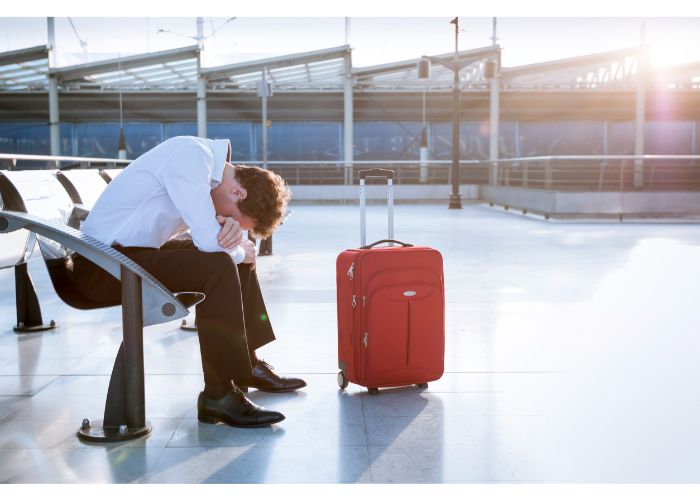
EC 261 is in place to protect passengers from flight delays and cancellations. Depending on the circumstances of your flight, you could receive up to £540 per passenger if your flight qualifies for compensation.
Unfortunately, this law only covers issues that are within the airline’s control. This does not apply to airline strikes because these qualify as unforeseen circumstances – even if the airline knows about them in advance.
While frustrating, you may be able to claim compensation from their airline. Work directly with the customer service team to see what you are entitled to. If your flight is cancelled or delayed, they can work with you to arrange alternative accommodations if applicable. You have options if you are faced with an airline strike delay.
Conclusion
There is no set time for how long airline strikes last. It really depends on the situation and who is striking. Some airline strikes can last a day, while others can extend more than a week. Check with your airline to see if you are impacted by any current airline strikes before travelling.
Frequently Asked Questions
-
How can I find out if my flight is affected by an airline strike before my travel date?
To find out if your flight might be impacted by an airline strike, it’s essential to stay updated on any strike-related developments. The best source of information is your airline itself. Check their official website, mobile app, or contact their customer service directly. Airlines typically announce planned strikes in advance to minimize disruptions for passengers. By keeping in touch with your airline, you can receive timely notifications about potential cancellations, delays, or alternative arrangements.
-
Can airlines make alternative arrangements during a strike, such as using non-union staff to operate flights?
During a strike, airlines may attempt to mitigate the impact by making alternative arrangements, such as bringing in non-union staff to operate flights. However, this action is often met with resistance from the striking workers and their unions, as it can be seen as a violation of labor contracts. Introducing replacement staff may further strain negotiations and prolong the strike. Additionally, airlines must ensure that any alternative staff they employ are qualified and certified to perform the required tasks.
-
Are there any signs or indications that a wildcat strike might occur without prior notice?
Wildcat strikes are characterized by their spontaneous nature and lack of prior notice to the airline or the public. These strikes are usually driven by employee frustration and dissatisfaction when they feel their concerns are not being addressed by the union. Signs of an impending wildcat strike may include increased tension among employees, rumors of dissatisfaction circulating within the workforce, or sudden disruptive actions taken by employees in protest. However, as they are unplanned, predicting a wildcat strike is challenging, making them more unpredictable and disruptive than planned strikes.
-
Is there a specific time of the year when airline strikes are more likely to happen?
Airline strikes can occur at any time of the year and are not necessarily tied to specific seasons or holidays. The likelihood of a strike depends on various factors, including ongoing labor negotiations, disputes, and the prevailing working conditions. While certain periods, such as peak travel seasons or holidays, may create more significant leverage for unions, airline strikes are generally not limited to any particular time frame.
-
If my flight is canceled due to a strike, will the airline automatically rebook me on the next available flight, or do I need to take specific steps to arrange for an alternative flight?
If your flight is canceled due to an airline strike, the airline should offer you alternative options. In most cases, they will automatically rebook you on the next available flight or provide you with alternative routing to reach your destination. However, the extent of assistance and available options may vary depending on the airline’s policies and the specific circumstances of the strike. It’s crucial to promptly contact the airline’s customer service to understand your options and make necessary arrangements to minimize inconvenience and disruptions to your travel plans.



